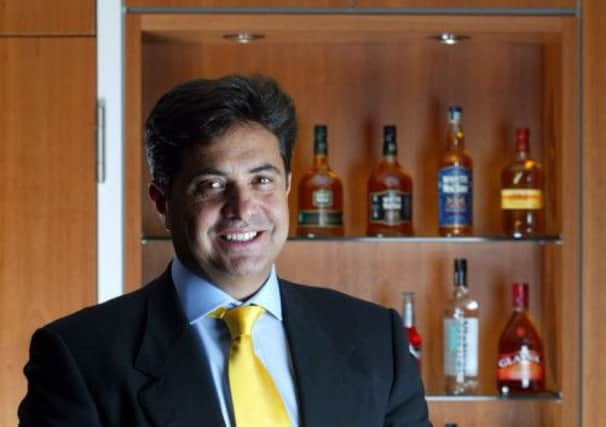‘Man from Del Monte’ keen on buying Whyte & Mackay


Imerman, a former chief executive of Whyte & Mackay, is considering an offer to buy back the business he sold six years ago if Diageo is forced to offload it to allay competition concerns. It would be an “important addition” to his current collection of spirits and beer businesses in Africa and Asia.
Known as “the man from Del Monte” from his time as chief executive of that business, Imerman and his former brother-in-law, Robert Tchenguiz, led a group of investors who acquired Whyte & Mackay in 2001 in a £200 million deal.
Advertisement
Hide AdAdvertisement
Hide AdIn 2007, they sold the business to Vijay Mallya’s United Spirits for £595m. That deal reportedly netted Imerman £396m.
It included a restraint clause that has since expired which barred Imerman from buying back the business for five years.
“I have done as much as I can do with the company and I have maximised income,” he said at the time of the sale. “The company either needed to be bought or buy a brand to sell into emerging markets.”
Diageo acquired Whyte & Mackay when it bought United Spirits last year as part of a wider-ranging bid to boost its presence in emerging markets.
The world’s largest distiller said earlier this week that it would sell most of Whyte & Mackay to alleviate concerns from the Office of Fair trading that the acquisition could lead to higher prices for blended whisky in the UK. As Whyte & Mackay is a major supplier of own-label blended whisky to supermarkets and other retailers, its products compete heavily with Bell’s and other Diageo brands.
Diageo has said it is willing to sell Whyte & Mackay’s grain distilleries, but would prefer to keep the company’s Dalmore and Tamnavulin malt brands. The OFT is considering this proposal and has suspended referring the case to the Competition Commission.
Imerman set up private investment group Vasari in 2008 and has served as its chairman since then. It is focused on “opportunities in emerging and frontier markets in consumer packaged goods”.
In a statement issued yesterday by Vasari, Imerman confirmed he was interested in buying back the brand.
Advertisement
Hide AdAdvertisement
Hide Ad“Whyte & Mackay would make an important addition to the portfolio of spirits and beer businesses in Africa and Asia where Mr Imerman has been concentrating his efforts through his company Vasari since his five-year restraint expired last year,” the statement said.
“The W&M brand would be complementary to the strategy of acquiring and growing businesses in these regions to take advantage of rapid consumer growth.”
Because the brand is not very strong, analysts say Whyte & Mackay is unlikely to fetch as high a premium as other spirits sales. Phil Carrol of Shore Capital reckons the price falls somewhere between the £200m paid for the business in 2001 and the £595m Imerman sold it for six years later.
“I would be surprised if they got to that top end, plus they won’t be buying all of the business if the malts are taken out of the equation,” Carrol said.